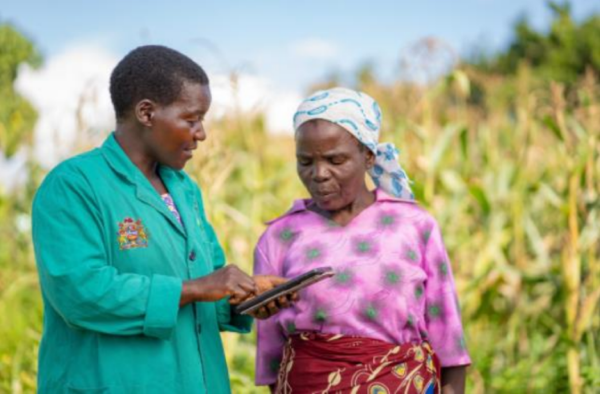新闻资讯
GFAR Collective Action on Inclusive Digital Transformation of Agriculture
Farmers in general and smallholder farmers in particular are not harnessing the benefits of the ongoing and accelerating digital transformation. Digital Agriculture (DA) is expected to increase agricultural production and productivity, help adapt to and mitigate the effects of climate change, bring about more economic and efficient use of natural resources, reduce risk and improve resilience in farming, and make agri-food market chains much more efficient. The lack of inclusion of farmers in the design and governance of DA processes widens the gap between bigger and smaller actors in the DA value chain, and discourages small farmers from fully embracing DA. Consequently, the benefits that DA could bring to the efficiency, transparency and equity of agri-food value chains, as well as to climate change mitigation and adaptation, are not being realized.
To address these challenges, Partners in GFAR have started an action on Inclusive Digital Transformation of Agriculture.

The first phase was launched in August 2021 in Latin America and the Caribbean, led by the Forum of the Americas for Agricultural Research and Technology Development (FORAGRO) and in partnership with the Confederation of Family Producers Organizations of the Expanded Mercosur (COPROFAM), the Global Open Data for Agriculture and Nutrition (GODAN) initiative, and the AgGateway consortium of digital agriculture solution providers.
How is GFAR facilitating this Collective Action?
The action will build on stock-taking exercises already conducted on the topic and will take an iterative approach: each phase will include a) surveys for a farmer-centric needs/constraints assessment, b) multi-stakeholder consultations for co-designing farmer-fair business models and best practices for digital transformation, c) capacity development tools and events, d) input for launching pilot implementations, e) advocacy for policies. The identified needs and the devised models and best practices will be the basis for capacity development, pilots and advocacy. All findings and material produced or used in the Action as well as other relevant publicly available resources will be adapted and organized in an Online Toolkit for Inclusive Digital Agriculture.
The final objectives are that a) farmers contribute on equal terms with other actors to the design, governance, sharing and use of DA data, technologies and processes, as well as promotion and support of pertinent policies and practices; and b) farmers perceive the DA value chain (technology, money, data, knowledge) as farmer-fair and embrace DA technologies that help them increase productivity and income, reduce risk, use natural resources sustainably and mitigate/adapt to climate change.

